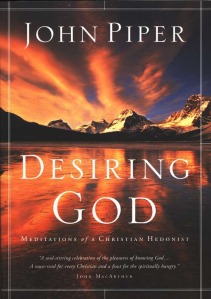In Matthew 14, Peter does the unthinkable. Faced with a potential phantom on the sea, Peter tests the apparent Jesus by daring, “If it’s really you, then call me out there with you.”
The reasoning behind Peter’s request has long been lost on me. How much easier to test the “ghost” by quizzing him on last week’s accommodations are inviting him to do a secret handshake. However, such thoughts betray my ignorance of discipleship.
Within the relationship between Rabbi and disciple, there is always an aura of confidence. The Rabbi deeply believes that his disciples can become like him – they can do what he can do; they can be what he can be. Apparently, Peter has absorbed this sense of confidence, and it is worth noting that for all the criticism “doubting Peter” receives, there are eleven (or perhaps millions of) “believers” who are comfortably (and sadly) dry in their critiques.
THE TWIST
One fascinating twist on this story was recently revealed to me. It revolves around some simple questions: What exactly took place in those Peter-was-walking-but-now-he-isn’t moments? What actually happened out there?
Hints toward our answers lie in Jesus’ closing question to Peter: “Why did you doubt?” We laugh at the apparently obvious answers: “How about we start with the wind and the waves, and we’ll go from there?” But weather reports are dwarfed by a basic recognition that we easily lose in the winds. Here it is.
Peter didn’t doubt Jesus.
Jesus’ feet were secure. He wasn’t sinking. He wasn’t even shaking. In fact, Peter’s cry for help is an easy indicator of his confidence in Jesus. On the verge of being sea-swallowed, there was only one name on Peter’s lips. So, the just-below-the-surface realization here is that Peter was actually doubting himself. In the midst of a supernatural-saturated experience, some very natural thoughts arose — many of them seen clearly as one slides the emphasis through five small words:
How am I doing this?
How am I doing this?
How am I doing this?
How am I doing this?
How am I doing this?
Uncertainty crystallized into fear: “Oh man, I don’t think I can do this. There is no way I can do what my Rabbi does.”
For all the confidence that disciple-Peter might have earlier absorbed from his Master, more than Peter’s knees were shaking now.
FEET ON SEAS AND FINGERS ON KEYS
The whole story makes me think of typing.
 I grew up on the border of technology, in that I actually had a typing class in high school. I remember it vividly because if you were quick enough to class, you found a seat at the luxurious electric typewriters. Pokier people got to build finger muscles by pounding the keys deep into the depths of their typewriters. Next door was the computer lab, whose machines held the reward for all of our digit-dancing devotion. All this to say: For all the skills my hands do not possess, they do type relatively well.
I grew up on the border of technology, in that I actually had a typing class in high school. I remember it vividly because if you were quick enough to class, you found a seat at the luxurious electric typewriters. Pokier people got to build finger muscles by pounding the keys deep into the depths of their typewriters. Next door was the computer lab, whose machines held the reward for all of our digit-dancing devotion. All this to say: For all the skills my hands do not possess, they do type relatively well.
But here’s what amazes me about typing.
My hands can move significantly faster than my mind. To hit one’s keyboarding stride is a thing of beauty to the word-lover. It is a dance, in which ten small partners beat thoughts into text to a catchy clickety-clack rhythm.
Sometimes, in the midst of a great groove, I will catch myself thinking. “Wow, this is a great groove. My fingers are really flying!” And at about that moment, I slow down. I respond, in an attempt regain my footing in said groove, by consciously pushing harder and faster. And the mistakes begin. Now I’m backspacing and grinding forward at a pace nothing like the earlier groove. I was functioning on a level beyond thought, so much so that the act of thinking — typically a helpful act — actually serves as an anchor sinking me back down to a more average experience.
There is something profound here.
And I’ll tell you what it is… tomorrow.









